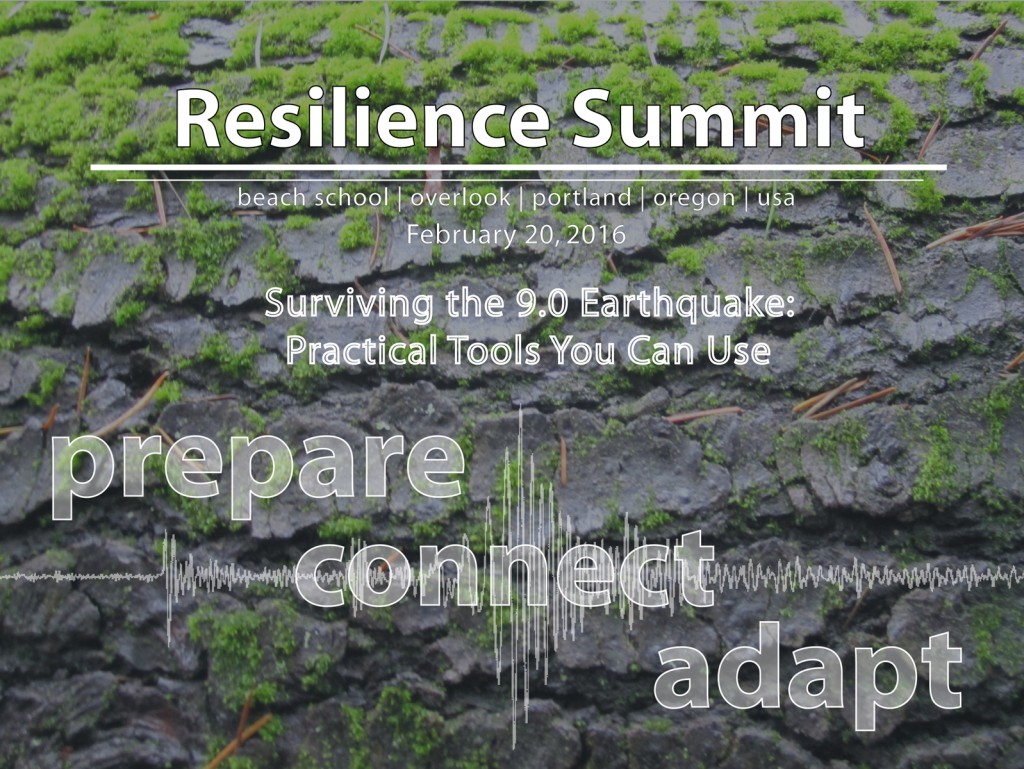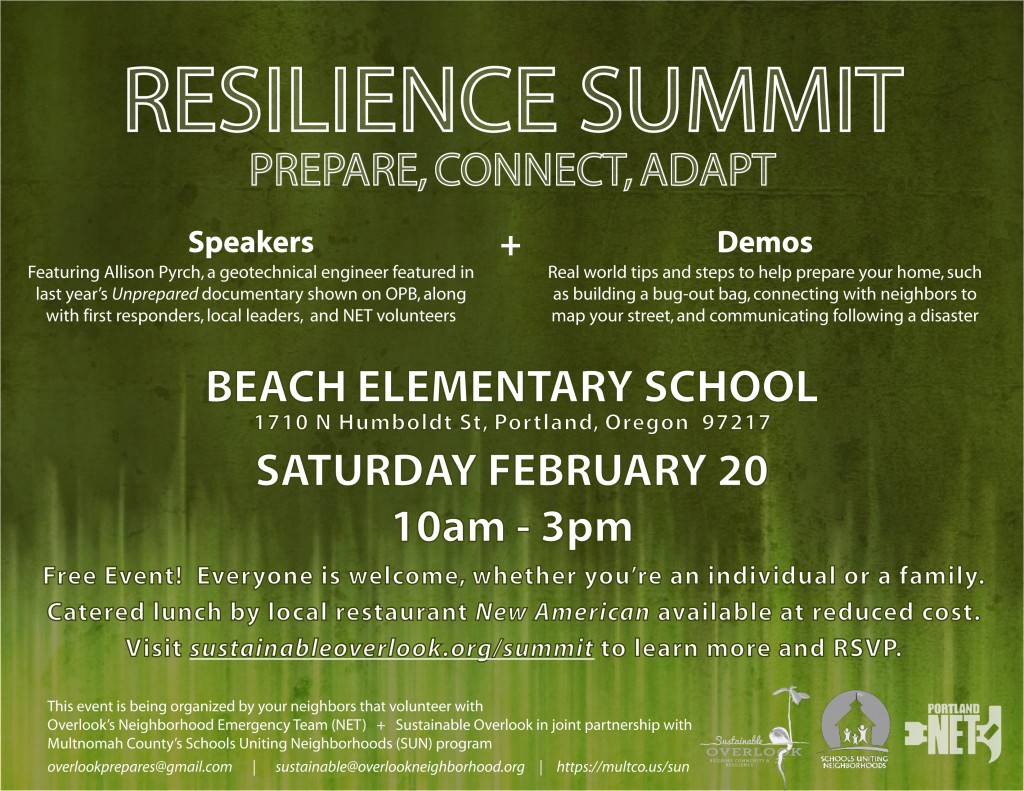A Quick Recap of the 2016 Summit…
Thank you to all who attended this year’s Resilience Summit. We had over 100 participants, and a lot of information was covered in a short period of time. We hope this helps us all to step up our preparation efforts and to build a tighter community in advance of a potential disaster.
If you have questions or would like to learn more about what was covered at the summit, or about the missions of Overlook’s Neighborhood Emergency Team (NET) or Sustainable Overlook, please e-mail us at sustainable@overlookneighborhood.org
Preparedness: Where Resilience Begins
Resilience is the ability of an individual, group or system to be able to adapt and recover in the wake of adversity. Preparation is only part of the equation; in order to bounce back and truly thrive, we need to connect with each other to leverage our collective resources to help us adapt to and overcome the unexpected. Whether it’s growing your own food, connecting more closely with neighbors, or building relationships with emergency responders, perhaps the best part about building resilience is that its benefits can be enjoyed almost immediately, not just when disaster strikes.
Sustainable Overlook has joined up with Overlook’s Neighborhood Emergency Team (NET) and Multnomah County’s Schools Uniting Neighborhoods (SUN) to organize a day of discussion and active education about ways we can build our resilience at the scale of our homes, our streets, and and our neighborhoods.
The morning featured speakers including Ernie Jones of Portland NET, Captain Corey Wilson of our local Fire Station #24, Overlook NET’s Leader Mitch Bixby, and Allison Pyrch, a local geotechnical engineer who helped accompany an Oregon delegation to Japan to study their resilience in the face of the devastating 2011 Tōhoku earthquake. Allison’s work has been featured most recently on Unprepared, a documentary shown on OPB this past summer, that addresses what Oregon might face during and after a massive Cascadian Subduction Zone earthquake. Each presentation looked at preparations already underway at state, local, and neighborhood levels, and each presenter sought to highlight ways each of us can prepare, connect, and adapt.
The afternoon offered a more open structure with informational tables and live demonstrations including how Overlook’s Incident Command Structure is being organized and how it relates to our 4 staging areas, how to map your street with neighbors to help build your collective preparation, tips for preparing food following a disaster, and how to communicate when the power has gone out using radio technology.
If you have any questions about what was covered, feel free to e-mail us at sustainable@overlookneighborhood.org


